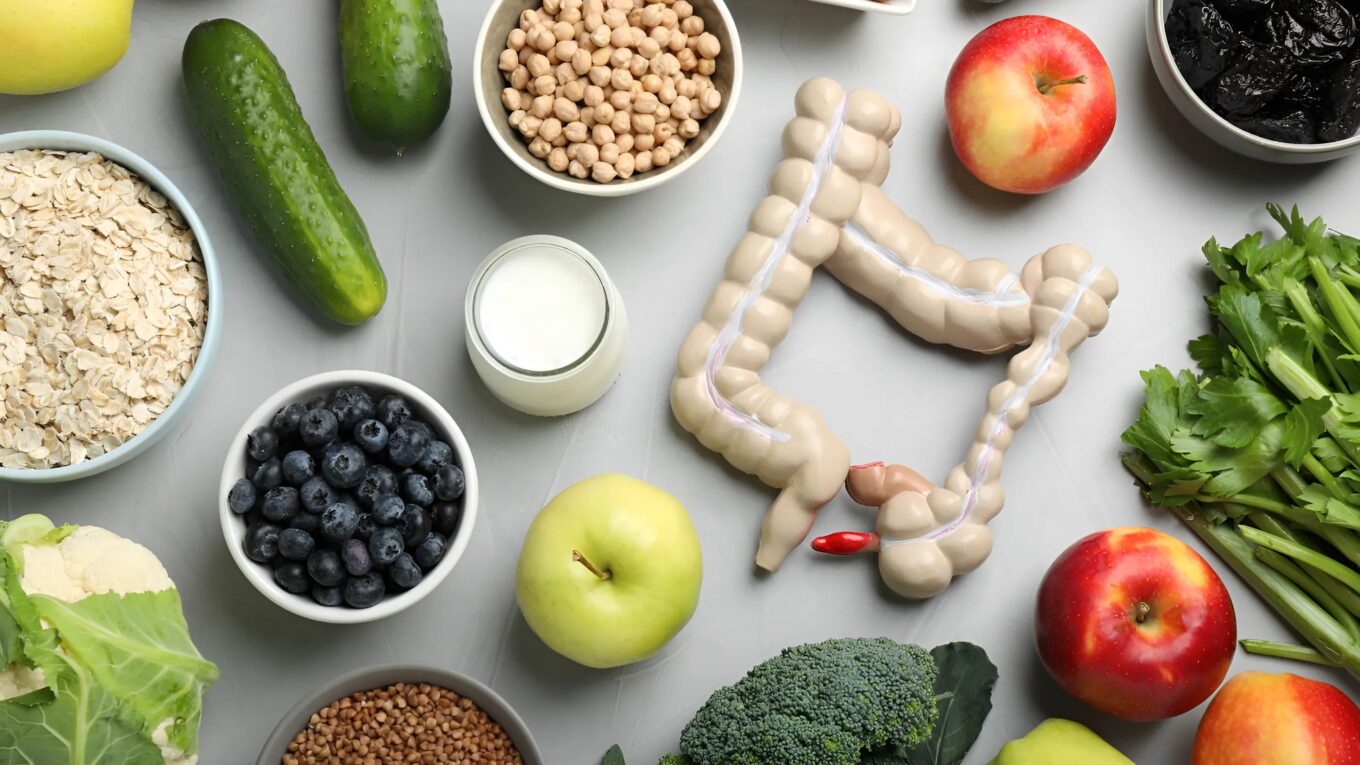Click here to Visit Facebook Page
Digestive problems can make mealtimes a challenge. From bloating and gas to more severe conditions like irritable bowel syndrome (IBS) or inflammatory bowel disease (IBD), what you eat plays a significant role in managing symptoms. The good news is that with mindful eating habits and thoughtful food choices, you can alleviate discomfort and promote a healthier digestive system. Here’s a comprehensive guide to healthy eating when you have digestive problems.
Understanding Your Digestive System:
The digestive system is responsible for breaking down food, absorbing nutrients, and expelling waste. When it’s not functioning properly, symptoms like pain, bloating, diarrhea, and constipation can occur. Common digestive disorders include:
– Irritable Bowel Syndrome (IBS)
– Inflammatory Bowel Disease (IBD), including Crohn’s disease and ulcerative colitis
– Gastroesophageal Reflux Disease (GERD)
– Celiac Disease
– Lactose Intolerance
– Diverticulitis
Each condition has unique dietary requirements, but some general principles can help manage symptoms across the board.
Click here to Visit Facebook Page
General Principles of a Digestive-Friendly Diet:
1. Eat Smaller, Frequent Meals:
Large meals can overload your digestive system. Smaller, more frequent meals are easier to digest and can prevent symptoms like bloating and acid reflux.
2. Stay Hydrated:
Water is essential for digestion. It helps break down food and keeps stool soft, preventing constipation. Aim for at least eight 8-ounce glasses of water a day, more if you’re active.
3. Limit Fatty Foods:
High-fat foods can slow digestion and trigger symptoms in people with digestive problems. Opt for lean proteins and low-fat cooking methods like grilling, baking, or steaming.
4. Incorporate Fiber Gradually:
Fiber is crucial for healthy digestion, but too much too soon can cause gas and bloating. Increase your fiber intake gradually, focusing on soluble fiber from foods like oats, bananas, and carrots, which are gentler on the digestive system than insoluble fiber.
5. Chew Thoroughly:
Digestion starts in the mouth. Chewing food thoroughly can make it easier for your stomach to break down and absorb nutrients.
Click here to Visit Facebook Page
Specific Dietary Recommendations:
For IBS
People with IBS often find relief by following a low-FODMAP diet. FODMAPs (Fermentable Oligo-, Di-, Mono-saccharides, And Polyols) are short-chain carbohydrates that can be difficult to digest. Foods high in FODMAPs include:
– Certain fruits like apples and pears
– Vegetables like onions and garlic
– Dairy products
– Wheat and rye
Low-FODMAP alternatives include:
– Berries and citrus fruits
– Spinach, carrots, and bell peppers
– Lactose-free dairy products
– Gluten-free grains like rice and quinoa
Click here to Visit Facebook Page
For GERD
GERD sufferers should avoid foods that trigger acid reflux, such as:
– Spicy foods
– Citrus fruits
– Tomatoes and tomato-based products
– Chocolate
– Caffeine
– Alcohol
Instead, focus on:
– Non-citrus fruits like bananas and melons
– Vegetables
– Lean proteins
– Whole grains
Click here to Visit Facebook Page
For IBD (Crohn’s Disease and Ulcerative Colitis):
People with IBD should tailor their diet to their specific condition and symptoms. During flare-ups, a low-residue diet can be beneficial:
– Limit fiber intake to reduce bowel movements
– Avoid raw fruits and vegetables
– Choose refined grains over whole grains
During remission, a balanced diet rich in nutrients is crucial. Omega-3 fatty acids from fish, antioxidants from fruits and vegetables, and probiotics from fermented foods like yogurt can support overall gut health.
Click here to Visit Facebook Page
For Celiac Disease:
The only treatment for celiac disease is a strict gluten-free diet. Avoid all foods containing wheat, barley, and rye. Gluten-free alternatives include:
– Gluten-free bread and pasta
– Rice, corn, quinoa, and other gluten-free grains
– Fresh fruits and vegetables
– Meat, fish, and poultry without breading or marinades
Mindful Eating Habits:
Mindful eating involves paying full attention to the eating experience. This can help you recognize hunger and fullness cues, reduce stress around eating, and improve digestion. Tips include:
– Eating slowly and without distractions
– Savoring each bite and noticing flavors and textures
– Eating in a relaxed environment
– Listening to your body’s hunger and fullness signals
Click here to Visit Facebook Page
Supplementary Tips:
1. Probiotics and Prebiotics:
Probiotics are beneficial bacteria that can improve gut health. Foods like yogurt, kefir, sauerkraut, and miso are rich in probiotics. Prebiotics, found in foods like garlic, onions, and asparagus, feed these good bacteria.
2. Avoid Artificial Sweeteners:
Some artificial sweeteners can cause digestive issues, including bloating and diarrhea. Opt for natural sweeteners like honey or maple syrup in moderation.
3. Stay Active:
Regular physical activity promotes healthy digestion by stimulating intestinal contractions. Aim for at least 30 minutes of moderate exercise most days of the week.
Click here to Visit Facebook Page
Consulting with a Professional:
Managing digestive problems often requires a personalized approach. Consulting with a healthcare provider, such as a gastroenterologist or a registered dietitian, can provide tailored advice based on your specific condition and needs. They can help you create a meal plan that supports your digestive health while ensuring you get all the necessary nutrients.
Conclusion:
Healthy eating with digestive problems involves understanding your condition, making thoughtful food choices, and adopting mindful eating habits. By following these guidelines, you can manage your symptoms, improve your overall well-being, and enjoy your meals without discomfort. Remember, it’s not just what you eat, but how you eat that makes a difference.





